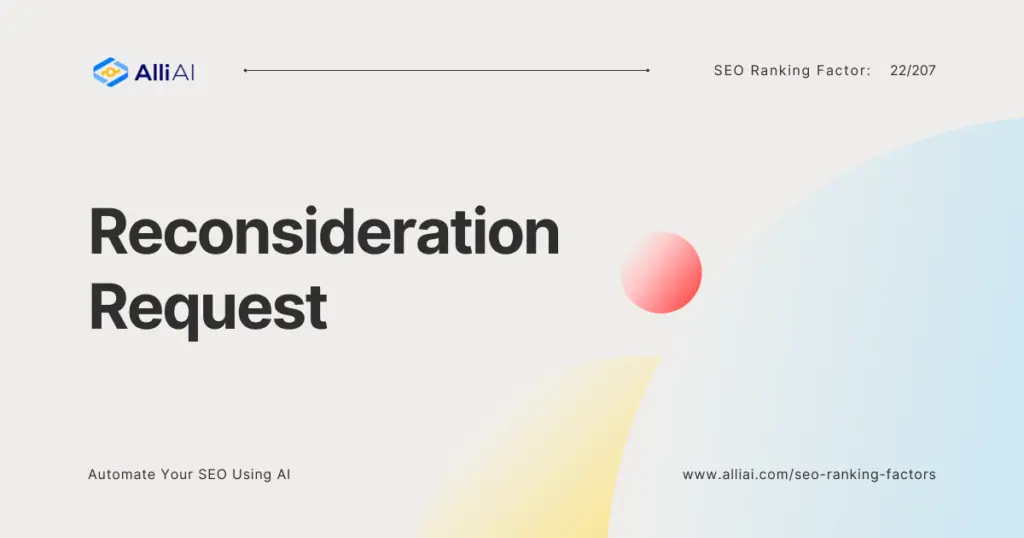What is Reconsideration Request?
A reconsideration request is a formal appeal to search engines, asking them to review a website again after it has been penalized or demoted in the search rankings due to a violation of the search engine’s guidelines. It is akin to a student asking a teacher to re-evaluate their exam paper after failing, believing there has been a mistake or that they have since corrected the issues that led to the initial failure.
Why is Reconsideration Request important in SEO?
In the world of SEO, a reconsideration request is crucial because it serves as a direct line of communication between a website owner and the search engine. Following a penalty—whether manual or algorithmic—visibility in search results can drastically decrease, leading to significant drops in traffic, conversions, and revenue. Submitting a well-crafted reconsideration request is akin to pleading your case in front of a judge, where you acknowledge the issues, demonstrate the corrective actions taken, and request a second chance to rank fairly in search results.
How Reconsideration Request affects SEO?
Submitting a reconsideration request can have a profound impact on SEO for several reasons. For one, if accepted, it can lead to the lifting of penalties imposed on your website, restoring your site’s rankings and visibility in the search engine results pages (SERPs). According to a survey by Search Engine Roundtable, nearly 70% of reconsideration requests are followed by some form of recovery, indicating the effectiveness of this SEO recovery tool. This shows the direct influence a reconsideration request can have on a website’s ability to regain lost ground in SERPs, highlighting its importance in the arsenal of SEO strategies.
FAQ
What happens after submitting a reconsideration request?
After you submit a reconsideration request, the search engine’s team reviews your website, the request, and any documentation or evidence provided to support it. This process can take anywhere from a few days to several weeks. If the search engine determines that your site now complies with their guidelines, they may lift the penalty, leading to potential recovery in rankings and traffic.
How often can I submit a reconsideration request?
There is no strict limit on the number of times you can submit a reconsideration request. However, it’s essential to only submit a request after thoroughly addressing the issues that led to the penalty. Submitting multiple, unfounded requests without making significant changes can waste time and may not lead to a favorable outcome.
Can a reconsideration request guarantee my website’s recovery in rankings?
While a reconsideration request is a critical step towards recovery, it does not guarantee that your website will regain its previous rankings. Search algorithms are complex, and rankings depend on numerous factors. However, if your reconsideration request is successful and your site’s penalty is lifted, you have a much better chance of improving your SEO performance and potentially recovering lost rankings over time.
Conclusion
In the complex and ever-evolving landscape of SEO, understanding the intricacies of a reconsideration request is invaluable. It’s a tool for redemption, allowing websites to rectify mistakes and plead their case to search engines. Just as in life, recovery from setbacks is not just possible but part of the growth process, and in the digital domain, reconsideration requests offer a pathway to regain lost visibility and credibility. By addressing the issues head-on, demonstrating genuine improvement, and effectively communicating through your reconsideration request, you open the door to potentially recovering your site’s standing in search results, marking an essential step in your SEO journey.






